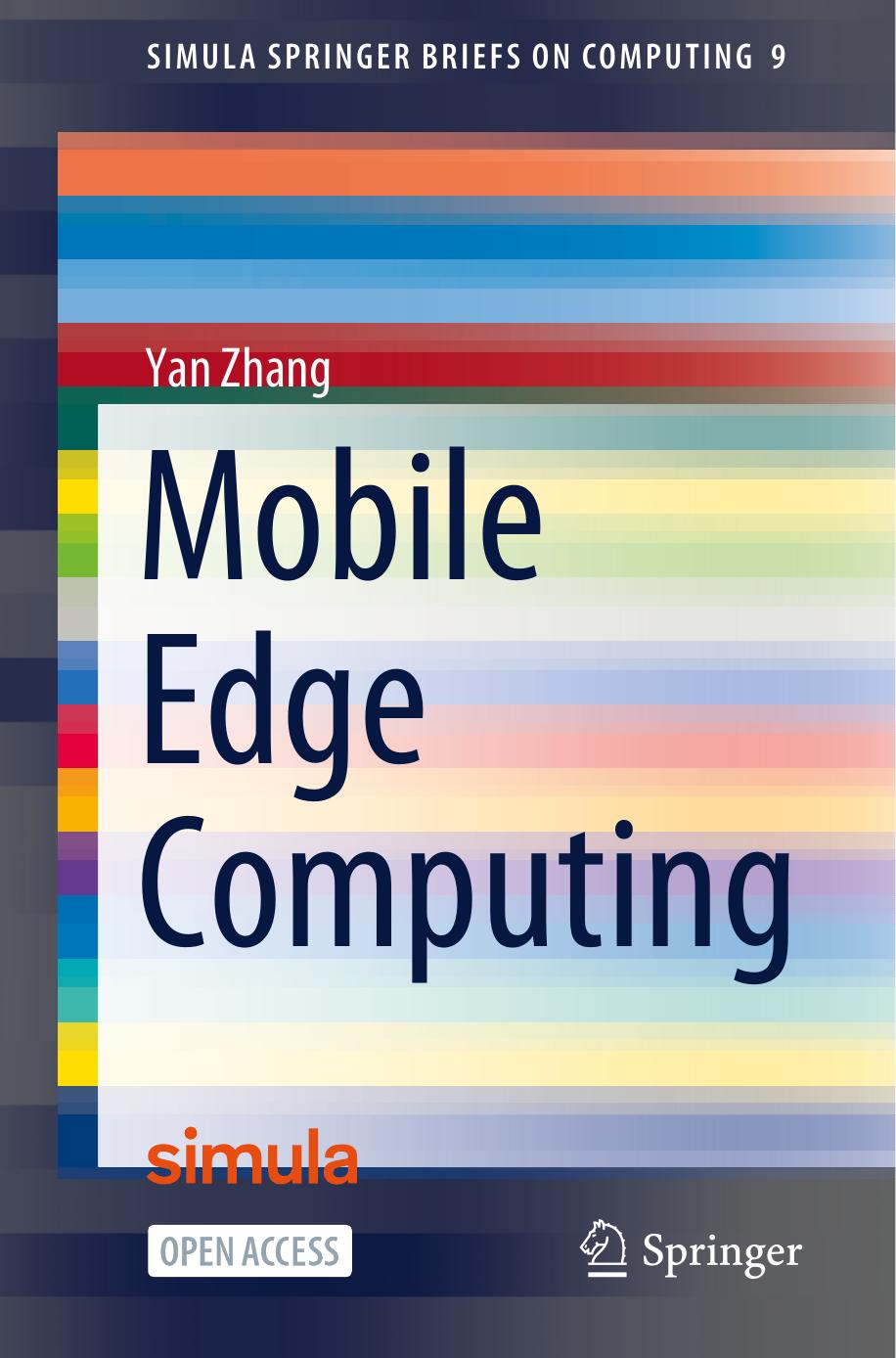Mobile Edge Computing by Yan Zhang

Author:Yan Zhang
Language: eng
Format: epub, pdf
ISBN: 9783030839444
Publisher: Springer International Publishing
5.4.3 AI-Empowered VEC
In recent years, we have witnessed unprecedented advancements and interest in artificial intelligence (AI). Machine learning, a key AI technology, provides entities working in complex systems the ability to automatically learn and improve from experience without being previously and explicitly programmed.
A vehicular network is such a complex system that is characterized by unpredictable vehicle movements, a dynamic topology, unstable communication connections, and frequent handover events. Computation task offloading and resource scheduling in vehicular network are a challenge, since an optimal solution should be aware of the network environment, understand the service requirements, and consider numerous other factors. Leveraging a machine learning approach in vehicular edge management is a promising paradigm for addressing the challenges mentioned above.
Various types of machine learning techniques have been applied in VEC, among which reinforcement learning is the most important. Reinforcement learning makes agents gain experience from their interactions with the environment and adjust action strategies along the learning process. This learning mode is suitable for dynamic road traffic states and complex vehicular networks. However, in large-scale networks handling massive amounts of state information, especially states represented by continuous values, the reinforcement learning approach cannot be directly implemented to solve the edge management problem. To address this issue, we can resort to deep Q reinforcement learning, which uses a Q-function as an approximator to capture complex interactions among various states and actions. Moreover, in the context of vehicular networks, some offloading actions could be chosen from a continuous space, such as wireless spectrum allocations and transmission power adjustments. To address the demands of this action space, edge service scheduling utilizes deep deterministic policy gradient learning, a branch of deep reinforcement learning that concurrently learns policy and value functions in a policy gradient learning process.
Many studies have applied machine learning to vehicular edge management. Some research focused on the relations of offloading decisions in the time dimension. Since data transmission and task execution are hard to complete instantaneously, previous actions will affect subsequent decisions through an extension of edge service states. The action dependence raises challenges in the optimization of current offloading strategies. To address them, Qi, Wang, et al. [74] designed a vehicular knowledge-driven offloading decision framework that scruples the future data dependence of the following generated tasks and helps obtain the optimal action strategies directly from the environment.
Another intersecting research issue of AI-empowered VEC is the adaptability of learning models in the context of complex vehicular networks. Considering potentially multiple optimization goals for offloading service management and that a single learning model can meet only part of the requirements, the incorporation of multiple models in the learning process is a promising approach. Sonmez, Tunca, Ozgovde and Ersoy [75] proposed a two-stage machine learning mechanism that consists of classification models in the first stage to improve the task completion success rate and regression models in the second stage to minimize edge service time costs. In [76], multi-model cooperation is adapted to become more flexible. To address the diversity and dynamics of the factors impacting edge service in vehicular networks, Chen, Liu, et al.
Download
This site does not store any files on its server. We only index and link to content provided by other sites. Please contact the content providers to delete copyright contents if any and email us, we'll remove relevant links or contents immediately.
API Testing and Development with Postman by Dave Westerveld(4100)
Learning C# by Developing Games with Unity 2020 by Harrison Ferrone(3073)
Software Architecture for Busy Developers by Stéphane Eyskens(2867)
2021 Beginners Guide to Python Programming Language: A Crash Course to Mastering Python in One Hour by Elmer Gary & Elmer Gary(1940)
Machine Learning for Algorithmic Trading by Stefan Jansen(1697)
Hands-On ROS for Robotics Programming by Bernardo Ronquillo Japón(1618)
Delphi GUI Programming with FireMonkey by Andrea Magni(1508)
Game Development Projects with Unreal Engine by Hammad Fozi & Goncalo Marques & David Pereira & Devin Sherry(1469)
Cloud Native with Kubernetes by Alexander Raul(1423)
Datadog Cloud Monitoring Quick Start Guide by Thomas Kurian Theakanath(1393)
Software Architecture Patterns for Serverless Systems by John Gilbert(1389)
Practical Node-RED Programming by Taiji Hagino(1376)
Automate It with Zapier by Kelly Goss(1365)
Practical System Programming for Rust Developers by Prabhu Eshwarla(1357)
Delphi Programming Projects by William Duarte(1341)
Mastering React Test-Driven Development by Daniel Irvine(1335)
Advanced Algorithms and Data Structures by Marcello La Rocca(1310)
Developing Multi-Platform Apps with Visual Studio Code by Ovais Mehboob Ahmed Khan & Khusro Habib & Chris Dias(1303)
Ghidra Software Reverse Engineering for Beginners by A. P. David(1286)
